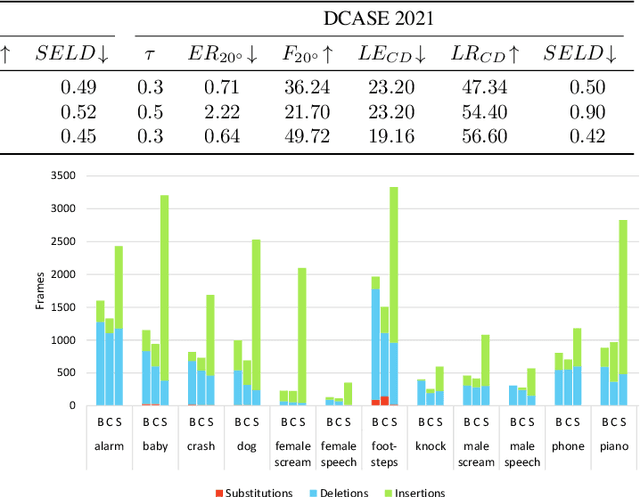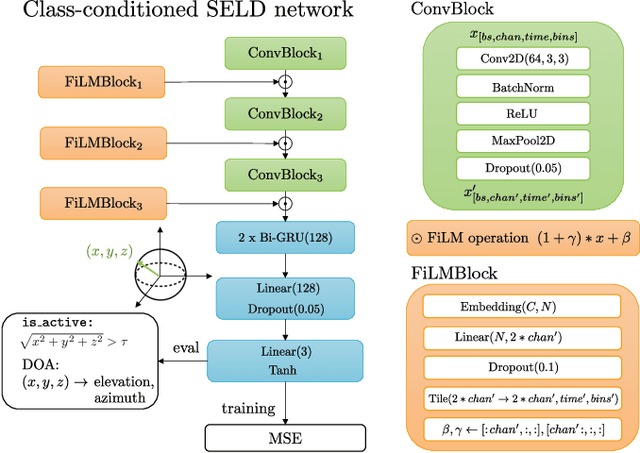Locate This, Not That: Class-Conditioned Sound Event DOA Estimation
Paper and Code
Mar 08, 2022



Existing systems for sound event localization and detection (SELD) typically operate by estimating a source location for all classes at every time instant. In this paper, we propose an alternative class-conditioned SELD model for situations where we may not be interested in localizing all classes all of the time. This class-conditioned SELD model takes as input the spatial and spectral features from the sound file, and also a one-hot vector indicating the class we are currently interested in localizing. We inject the conditioning information at several points in our model using feature-wise linear modulation (FiLM) layers. Through experiments on the DCASE 2020 Task 3 dataset, we show that the proposed class-conditioned SELD model performs better in terms of common SELD metrics than the baseline model that locates all classes simultaneously, and also outperforms specialist models that are trained to locate only a single class of interest. We also evaluate performance on the DCASE 2021 Task 3 dataset, which includes directional interference (sound events from classes we are not interested in localizing) and notice especially strong improvement from the class-conditioned model.
 Add to Chrome
Add to Chrome Add to Firefox
Add to Firefox Add to Edge
Add to Edge